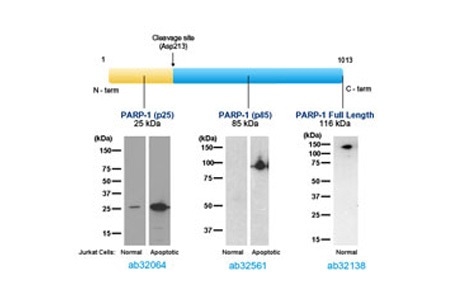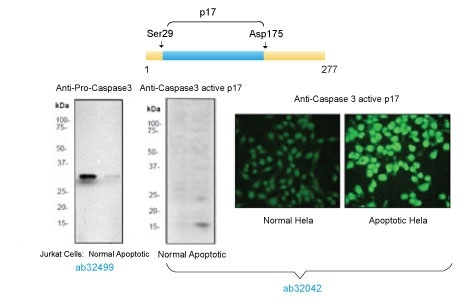Sponsored Content by AbcamApr 4 2019
Proteolytic pathways, and the general cleavage of proteins, play important roles in a huge variety of different biological processes.
These processes include:
- Movement of proteins to different cellular regions
- The regulation of the activity of proteins
- The regulation of intracellular protein concentrations
The site-specific cleavage of proteins can result in smaller protein fragments that show characteristic functions and behaviors. Studying the mechanisms by which protein cleavage occurs, and the proteins it results in, is made more effective when using cleavage specific antibodies.
These antibodies provide a simple and effective method of detecting and quantifying the fragments that are produced.
Rabbits have a distinctive immune system, which can produce antibodies that can identify the small changes in epitopes that can occur during protein cleavage. The high selectivity and strong binding of RabMAb® antibodies facilitate the unambiguous characterization of parental and cleaved protein fragments in FACS, Western blot and IHC applications.
Abcam’s customer service team have an established reputation for the development of custom RabMAb primary antibodies that are capable of differentiating between small differences in protein structures.
A Comparison of Specificity of Various PARP RabMAb Primary Antibodies
Each Poly (ADP-ribose) polymerase (PARP-1) specific RabMAb primary antibody (ab32064, ab32561 and ab32138) recognizes one cleavage form with no cross-reactivity.

Anti-Caspase-3 RabMAb Primary Antibodies
One RabMAb primary antibody (ab32499) only detects pro-form of Caspase 3 and does not recognize any cleaved caspases, while the other (ab32042) only detects the active, cleaved form of Caspase 3 and does not recognize the pro-form.

 About Abcam
About Abcam
Abcam is a global life sciences company providing highly validated antibodies and other binders and assays to the research and clinical communities to help advance the understanding of biology and causes of disease.
Abcam’s mission is to serve life scientists to help them achieve their mission faster by listening to their needs, continuously innovating and improving and by giving them the tools, data and experience they want. Abcam’s ambition is to become the most influential life science company for researchers worldwide.
Sponsored Content Policy: News-Medical.net publishes articles and related content that may be derived from sources where we have existing commercial relationships, provided such content adds value to the core editorial ethos of News-Medical.Net which is to educate and inform site visitors interested in medical research, science, medical devices and treatments.